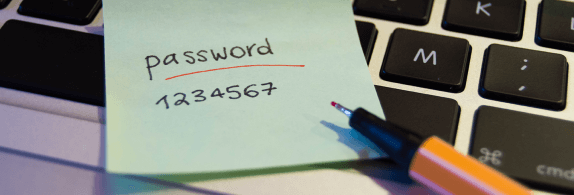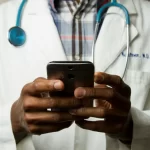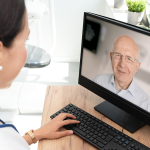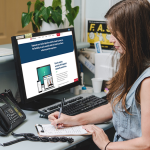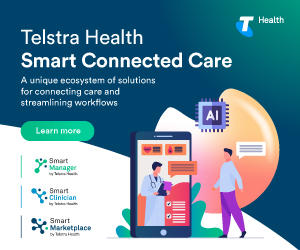Is your practice taking security seriously?
GP practices are busy places. You may have shared rooms, different practitioners working on different days of the week and multiple admin staff, all of who need to access your practice software.
It’s surprisingly common for patients to visit a GP and see the computer username and password on a post-it note stuck to the computer monitor, or even laminated and pinned to the corkboard so it’s easy to find. It may seem harmless, but let’s consider for a moment how patients might feel. They’re sharing personal health information in a private consultation with their doctor, and they’re comfortable that what is discussed is confidential; until they realise the username and password to their GP’s computer is visible to anyone.
For your patients to feel comfortable sharing their medical issues, they need to feel a high level of trust towards their practitioner. If their GP’s login details are accessible to anyone, it can call into question the importance of patient confidentiality in your practice.
Why is it so important to keep patient data safe?
Patient data is sensitive information, and while sometimes it is appropriate to share it, this can only be done under very specific circumstances. Not only does the safety of your patient data impact the level of trust your patients will have towards their practitioner, there are legal ramifications if patient data is compromised.
Generic passwords, publicly displayed login details and multiple users sharing a single account all compromise the safety of your systems and therefore your patient data. By taking every reasonable measure to safeguard access to your computer systems, you are showing your patients that you are serious about the security of their information.
Here are a few things you can do to protect your patient data, while still making it easy for the right people to get into your practice software.
Multi-layer security
Protecting your patient data means making sure your security systems are as well protected as they can be. Multi-layer security safeguards against multiple threats, including hackers, viruses, malware and more. Ensure the computers in your practice are up-to-date with anti-virus software, and be wary of scams and phishing emails that may compromise your data. Control access to staff computers and make sure screens are locked when staff are away from the keyboard.
Use strong and secure passwords that are not shared with anyone. You may also want to consider using a password manager like Lastpass or Dashlane, along with other security measures like two-factor authentication that can help you increase your level of security even if your password does become compromised.
Your patients trust you to keep their data safe. By showing that you take data security seriously, you can put their minds at rest and ensure they feel comfortable and cared for when they visit your practice.

